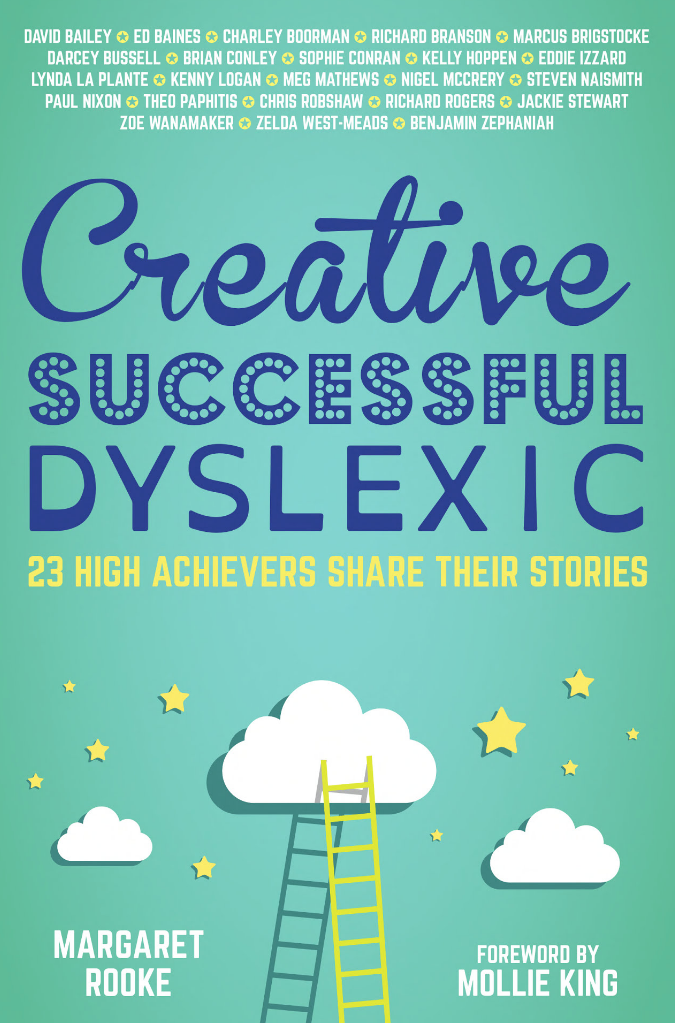Louise Wood reflects upon books that approach dyslexia in a positive way and discusses the new theory of neuro-diversity.
Anyone who has puzzled over the different take on a problem or issue by a partner, child or colleague will tell you that we all think differently. But now we understand a great deal more from neuroscience about why this might be the case. The term neuro-diversity has been coined to describe this characteristic.
Four recent books take up the idea and expand upon how those with dyslexia think differently, in particular more creatively. In a world that is changing in favour of adaptability, creativity and resilience, those with dyslexia may have the competitive edge.
Successful: Richard Branson, Darcy Bussell and Benjamin Zephaniah
Margaret Rooke, an established writer and mother of a dyslexic daughter, decided that she wanted to identify the characteristics of those with dyslexia who go on to achieve happiness and success in their chosen field. She interviewed 23 people, including poet Benjamin Zephaniah, entrepreneurs Richard Branson and Theo Paphitis, architect Richard Rogers and performers Eddie Izzard, Marcus Brigstocke and Darcy Bussell. Their insights are individual and inspirational but can all be grouped under the title of her book, Creative, Successful, Dyslexic.
Buoyed by the response to this book, Rooke went on to ask, what about ordinary young people? What strategies work for them? This resulted in a series of in-depth interviews with more than 100 children from 7 different countries for a book called Dyslexia is My Superpower (most of the time). The interviews show the importance of self-insight, building self-confidence and the many ways dyslexic children seek out what works for them. The fantastic illustrations by the children will be familiar to any parent of a dyslexic child and show that the written word is not the only way to make a powerful point.
But what of the world of work?
If you have seen Tiffany Sunday’s TEDx talk you will know what a persuasive public speaker she is and how passionately she feels that her own dyslexia has given her Dyslexia’s Competitive Edge, the title of her latest book. She argues that the future favours the entrepreneur and spells out exactly why dyslexics make excellent entrepreneurs. The words creativity and resilience come up again and also the importance of role models and mentors. Her thought-provoking rallying call is that computers will replicate neuro-typical thinking easily, but those who think less typically will be gold dust in the new technological economy.
For the British economy, built on engineering, ingenuity and creativity, tapping the widest range of talent in future is a cause we can all get behind.
Margaret Malpas MBE provides an overarching viewpoint, gained from a career in human resources and working with the British Dyslexia Association. In her book Self-Fulfillment with Dyslexia, A Blueprint for Success she has carefully researched the characteristics that enable adult dyslexics to achieve their full potential. These include finding the right niche, tapping your passion, drawing on coping strategies built up in early life and recognising atypical problem solving and creative skills. Significantly Malpas drills down to break the term creativity into its component parts - not just the moment of insight, but also the editing and follow through of ideas.
Encouragingly for those of us who support dyslexic friends and relatives Malpas and the fellow authors show how we as employers and family can make a big difference to the success of those with dyslexia by fostering self belief and providing emotional support. Together with self-awareness, these provide the emotional tool kit for success.
It’s important to note that no one is saying that being dyslexic makes life easy or that those with dyslexia have any inbuilt intellectual superiority or inferiority. But certainly the combined message of these four books, spotlighted at the recent British Dyslexia Association International Conference, is that those with dyslexia should draw more than a little comfort and a lot of excitement about the possibilities ahead.






